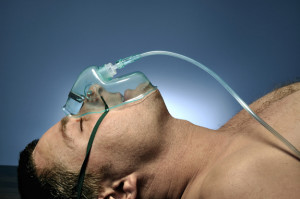Someone in a coma usually needs to be cared for in the intensive care unit (ICU) of the hospital. There, the person can get extra care and attention from doctors, nurses, and other hospital staff. They make sure the person gets fluids, nutrients, and any medicines needed to keep the body as healthy as possible. These are sometimes given through a tiny plastic tube inserted into a vein or through a feeding tube that brings fluids and nutrients directly to the stomach.
Some comatose people are unable to breathe on their own and need the help of a ventilator, a machine that pumps air into the lungs through a tube placed in the windpipe. The hospital staff also tries to prevent bedsores in someone who is comatose. Bedsores are open sores on the body that come from lying in one place for too long without moving at all.
How Do You Take Care of a Person in a Coma?
It can be very upsetting and frustrating for a person’s family to see someone they love in a coma, and they may feel scared and helpless. But they can help take care of the person. Taking time to visit the hospital and read to, talk to, and even play music for the patient is important because it’s possible that the person may be able to hear what’s going on, even if he or she can’t respond.
When coming out of a coma, a person probably will be confused and only slowly respond to what’s going on. It will take time for the person to start feeling better.
Sometimes people who come out of comas are just as they were before – they can remember what happened to them before the coma and can do everything they used to do.
Other people may need therapy to relearn basic things like tying their shoes, eating with a fork or spoon, or learning to walk all over again. They also may have problems with speaking or remembering things.
Over time and with the help of therapists, however, many people who have been in a coma can make a lot of progress. They may not be exactly like they were before the coma, but they can do many things and enjoy life with their family and friends.

